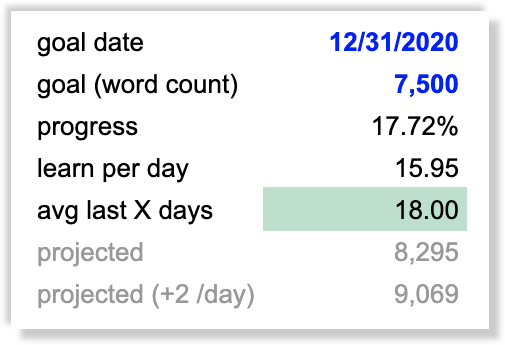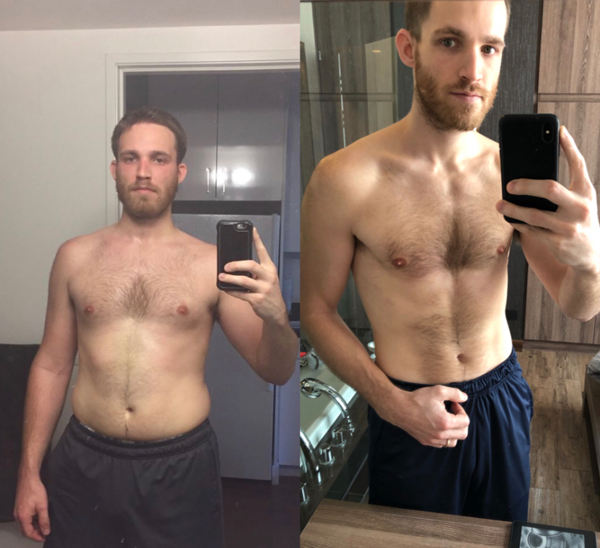today we check out personal finance strategies for couples.
my opinions are predicated by 1 assumption: neither you nor your partner are addicted to heroin.
merge, or not merge
United States marriage laws afford couples the ability to merge finances and legally spend all the money earned by the other person.
couples may also choose not to merge their finances, keeping legal and potentially even visible access (passwords) to oneself.
what’s right for you may not be right for me, but in this essay i’ll explain why my wife and i chose Option A: merge baby merge.
table stakes
giving advice on money and relationships is not my forte, so the least i can do is first outline inherent difficulties in the subject at large.
here are a few realities you’ll encounter no matter what personal finance strategy you implement:
- one spouse will always have more expensive “tastes”
- one spouse will consume more food, alcohol, fashion, subscriptions
- one spouse will be more generous
- one spouse will be a better saver
- one spouse will worry more about money
- one spouse will earn more money
while by no means exhaustive, this list illustrates the endless combinations of Money Sentiment. more importantly, it stresses that you and your spouse will never subscribe to the same one.
going forward i’ll use the term Money Sentiment to refer to this unfortunate truth.
separation breeds resentment
a married couple with separate finances — whether they’ve been together 1 year or 50 — make money decisions as if they’re dating. spouse B pays for dinner, maybe you split the rent, occasionally spouse A buys spouse B a gift.
in a financially siloed couple, if Spouse A earns more but spends less, Spouse B will fantasize about income reversal. if Spouse A buys a nicer car but drives less, Spouse B will resent the under-utilization. if Spouse A earns more but is less generous, Spouse B will label them miserly. and so on.
left unchecked this “mine and yours” mentality can spiral into “mine vs yours,” which i think happens 100% of the time on a long enough horizon. it also prevents couples from achieving at least one dimension of intimacy: The Red Button.
my red button
before marrying my wife we had a lot of conversations about “what love is.”
my definition is giving someone a big red button, with instructions that pushing it would destroy you, then saying “please don’t push it.”
put another way, my definition of love is Vulnerability; complete and utter surrender to your partner.
as non-married couples we gradually ease into this subconsciously. a few months into dating you might share how much your rent costs, then how much money you make, what debts you owe, your hopes and dreams, and maybe even online passwords.
humans are simultaneously addicted to increasing and decreasing our level of vulnerability to others. such is the magic of falling in love.
but couples who don’t share financials, don’t experience this aspect of vulnerability. which is crazy, because money is the most important driver of our lifestyle. (not happiness, self worth, or goodness, but our lifestyle)
merge
combining personal finances instantly makes you more vulnerable to one another. it’s also kind of exciting.
first, your bank account gets bigger. if you’re like me and live below your means, seeing that imaginary number get higher, faster, is great for peace of mind.
merging finances also intensifies your cash flow. those 5-10 subscriptions you were used to seeing hit your account have now doubled. suddenly you won’t recognize every charge, and you’ll swear the new items are more expensive than stuff you paid for on your own.
this is all part of the increased vulnerability process. now let’s explore the benefits.
24/7 teamwork
if your finances are separate, you only get to collaborate on money decisions a few times per month. maybe even less often. what caliber vacation should we take? how much can you invest in a new home down payment?
when your finances merge, every decision is made together, even if you don’t have an actual conversation about each one.
it’s like when a company’s co-founder takes the day off, but the other co-founder is still working to increase their share value. being part of a married couple that combines finances feels like that, except 10x better.
but what about…
some people think Money Sentiment differences are irreconcilable. in my “household,” for example, i can attest to being a bigger spender. my wife is more interested in investing.
by combining my go-big mindset with her “buy boring assets” attitude, we benefit from our Money Sentiment differences. couples who share, don’t achieve this synergy.
another concern of the “mine vs yours” crowd is that the lower earning partner will take advantage of the higher earning partner.
to smash this one in the face: if you don’t trust your partner to not F*** you financially, you should not marry them.
you know what’s worse than your partner buying a Bentley, without running it by you first, while you’re at work? it’s your partner buying a Bentley, without running it by you first, with “their money,” and you’re not allowed to be upset.
seek forgiveness, not permission
separate finances explicitly bans concepts like permission or endorsement, which also nullifies forgiveness when taken to its logical conclusion.
there is simply no recompense if your spouse spends “their” money on what “they” want, so long as they pay their portion of the rent. in other words, couples in this paradigm must support a rule that neither partner needs support to follow the rule!
a shared finances couple, however, has a toolbelt of solutions: compromise, negotiation, tradeoffs, and utility. by Utility i mean “pain” and “pleasure” points as described by scientist Dan Ariely.
shared finances increase net pleasure
imagine a group of 4 friends who meet weekly for dinner. according to Ariely’s research the net pleasure is greater if 1 person pays for the entire meal, on an even rotation, than if all 4 group members pay 25% of the bill each time.
this is based on evidence that the pain of pulling out your credit card to acknowledge the inevitable dinner bill has a minimum threshold of say 10 pain points. but whether the bill is $20 or $50, your total pain may increase to just 12 or 15 points, not 20 or 30.
similarly, a couple with different earning vs spending habits may find that a $5 latte makes Spouse A equally as satisfied as a new $50 t-shirt for Spouse B. yet if Spouse A earns more than Spouse B, the net pleasure will be lower in the separate finance couple than the shared.
in both cases Spouse A and Spouse B will “cap out” their pleasure, but in the separated finance scenario there will be extra unused utility on Spouse A’s side of the ledger.
combining differing Money Sentiments unlocks the opportunity to maximize pleasure and reduce pain.
who are you kidding?
when a young couple ties the knot, it may at first appear simpler to keep things separate. not for lack of trust, or differences in spending habits, or fear of being taken advantage of. just because.
but here’s the thing: what if you get divorced?
unless you sign a prenuptial agreement, a divorce in the United States triggers a 50/50 split of everything. which means being married with separate finances is like playing a cruel joke on yourself.
the joke is called Running Around All Day, Thinking You Have A Backup Plan (RAADTYHABP).
there is no Plan B
beginning a new friendship with healthy skepticism that it may not work out, is smart. signing a marriage contract with the same position is asinine.
in exchange for tax, legal, and medical benefits, governments ask married couples to stay married… forever. if you don’t, reversal will be painful and expensive.
akin to the Observer Effect — the act of measuring it changes it — married couples who kick off a permanent relationship with temporality in mind are almost destined for financial drama.
plan B, aka divorce with a few of your own coins, is a distraction to plan A, aka being happy together. in either case, as stated before, you’ll be giving the other side half your coins anyway.
dating vs marriage
i already mentioned how decision-making with separate finances is like dating. following are perks that married couples with merged finances enjoy.
equality
it’s no question that one partner will earn more than the other. but if a marriage is 2 halves coming together, why should one partner live a better lifestyle?
pride
my wife and i operate several businesses, each with their own bank account. we also freelance, have “passive income” projects, and own various equities. recently i found out that one of the accounts she manages had a lot more money in it than i thought, which led to celebration instead of jealousy.
shared burdens
when your money is “your money,” a loss is 100% your loss. if a car breaks down, a family member needs help, or you just plain want to do something nice, merging finances means each hit is only half as painful.
long-term planning
i can’t imagine what it would be like to make 5- or 20-year plans using the calculus of “but my partner will only have $X to spare by then.” one master pot of gold means the future is our oyster, and we share in the joy of creating it.
parenting
i don’t have kids YET, but as a former kid myself i know they’re experts at detecting which parent is likely to say yes to a given proposal. shared finances means my kids won’t be able to favor the “richer” or “more generous” parent.
how to get closer, with money
married couples with separate finances usually get set up that way by the higher-earning partner. the lower earning partner goes along with it because hey, who are they to “take advantage” of the person they love?
ironically, sometimes it is the higher earning partner who is taking advantage. as a southerner once told me, these people “want all the milk without having to buy the cow.”
the question we must ask ourselves, then, is why we’re afraid to commit.
because we can always make more money. we can always trade in our expensive cars or cancel the lease on an overpriced apartment. what we can’t do — at least in the same number of clicks — is reverse a marriage.
letting someone sleep next to you for 50 years, with a drawer full of knives in the next room, is a lot more risky than letting them buy a latte with your paycheck, no?
be vulnerable and grow.
The post Marriage and Finance appeared first on Ryan Kulp.
 (@ryanckulp)
(@ryanckulp) 



 (@thatbberg)
(@thatbberg) 













